13.11.2018

Manned spacecraft Soyuz MS-11 passes vacuum test
After that it was moved to a stand where it is to be connected to ground testing systems
Manned spacecraft Soyuz MS-11, due to be launched from Baikonur on December 3 with another expedition to the International Space Station, has passed vacuum tests, the space rocket corporation Energia (the spacecraft’s designer) has said on its website.
The spacecraft’s systems and compartments have passed vacuum tests. After that the Soyuz MS-11 was moved to a stand where it is to be connected to ground testing systems, Energia said.
Soyuz MS-11 is to take to the ISS Roscosmos’s Oleg Kononeko, NASA’s Anne McClain, and Canadian Space Agency’s David Saint-Jacques.
It will be the first manned space launch to the ISS after the October 11 aborted launch of the Soyuz-FG rocket carrying the manned spacecraft Soyuz MS-10 with a crew of two - Roscosmos’s Alexei Ovchinin and NASA’s Nick Hague. The crew was not hurt. It was the first manned space launch emergency in 35 years.
An inquiry found the accident was due to a malfunctioning stage separation sensor, damaged when the launch vehicle was assembled at the Baikonur space site.
The ISS’s current crew are Roscosmos’s Sergei Prokopiev, NASA’s Serena Aunon-Chancellor and the European Space Agency’s Alexander Gerst.
Quelle: TASS
+++
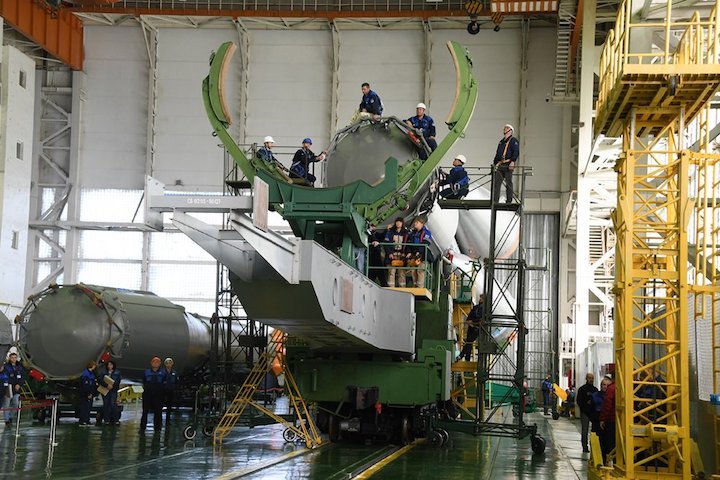

Quelle. Roscosmos
---
Update: 21.11.2018
.
Roscosmos ready to increase insurance of new manned launch to ISS 2.4-fold
The Center for Ground-Based Space Infrastructure Operation announced a tender for insuring risks for Soyuz-FG rocket launches with Soyuz MS-11 manned spacecraft to the International Space Station (ISS) and docking to the station, according to the public procurement website.
The insurance coverage will reach 4.786 bln rubles ($72.86 mln), the initial contract price - 344.653 mln rubles ($5.2 mln).
Head of Russia’s space corporation Roscosmos Dmitry Rogozin said earlier that Russia’s commission on manned space flights has approved the launch of a Soyuz MS-11 manned spaceship with a new crew to the International Space Station (ISS), which is scheduled for December 3. "The commission on manned space flights had a meeting yesterday. We decided to approve the launch of the Soyuz MS manned spaceship on December 3," he said.
The new crew to be sent to the ISS onboard the Soyuz MS-11 manned spaceship are Roscosmos cosmonaut Oleg Kononenko, NASA and Canadian Space Agency astronauts Anne McClain and David Saint-Jacques. Their flight was originally scheduled for late December but was rescheduled for December 3 due to the abortive launch of the Soyuz-FG carrier rocket.
Quelle: TASS
---
Update: 27.11.2018
.
New ISS crew to dock with orbital station six hours after blast-off
A new crew of the International Space Station is scheduled to dock with the orbital outpost some six hours after the blast off from the Baikonur Cosmodrome on the afternoon of December 3
A new crew of the International Space Station (ISS) is scheduled to dock with the orbital outpost some six hours after the blast off from the Baikonur Cosmodrome on the afternoon of December 3, a spokesperson for Russia’s State Space Corporation Roscosmos told TASS on Monday.
ISS Expedition 58 members Anne McClain of NASA, Oleg Kononenko of Roscosmos and David Saint-Jacques of the Canadian Space Agency are scheduled to take off to the orbital station two weeks on board of Russia’s Soyuz MS-11 spacecraft.
"This expedition’s flight route implies a short scheme," the spokesperson said. "The launch of the piloted Soyuz MS-11 spacecraft, which carries a new expedition, has been scheduled for December 3 at 14:31 Moscow time [11:31 GMT] and its docking with the ISS is expected later in the day at 20:36 Moscow time [17:36 GMT]."
The crew of the ISS Expedition 58 had been initially scheduled to begin the mission in late December, but the date was changed after October 11 abortive launch of Soyuz MS-10 spacecraft, carrying to the ISS Russia’s cosmonaut Alexei Ovchinin and NASA astronaut Nick Hague.
Cosmonaut Ovchinin and US astronaut Hague were to dock with the ISS on October 13, which meant two days after the take-off from the Baikonur space center in Kazakhstan. The crew of Expedition 58 is now expected to take the so-called ‘short route’ and dock with the ISS on the same day after the blast-off, exactly in a six-hour time.
Soyuz abortive launch
A Soyuz-FG carrier rocket with a manned Soyuz MS-10 spacecraft blasted off from Kazakhstan’s Baikonur Cosmodrome to the International Space Station (ISS) on October 11. On board the spacecraft were Russian cosmonaut Alexei Ovchinin (the commander of the Soyuz MS-10) and NASA astronaut Nick Hague.
Following a smooth liftoff, the Soyuz’s booster malfunctioned between the first and second stages of separating, whereupon the crew was forced to abort the flight and switch to ballistic descent. The manned Soyuz MS-10 spacecraft ended up landing in the Kazakh steppe.
The press office of Russia’s Central Military District reported that rescuers recovered the crew from the descent capsule. Later, the crewmembers were examined and found to be in good condition. After their medical check-up in the town of Baikonur, the astronauts were transported to Moscow.
This was the first emergency landing with this type of carrier rocket over the past 35 years.
NASA astronaut Nick Hague, who returned to Moscow from the Baikonur spaceport on October 12 after the Soyuz booster’s failure, flew to the United States on October 13.
As the emergency commission announced on November 1, the incident occurred after the nozzle lid of the oxidizer tank did not open due to the deformation of the stages’ separation contact sensor. The sensor was deformed during the assembly of the ‘package’ of the rocket’s first stage at the Baikonur Cosmodrome.
Quelle: TASS
----
Update: 29.11.2018
.
NASA TV to Air Next International Space Station Crew Launch, Docking

Three space travelers, including two astronauts on their first flight, are scheduled to launch to the International Space Station on Monday, Dec. 3 for a six-and-a-half month mission. Live coverage will air on NASA Television and the agency’s website.
At the Baikonur Cosmodrome in Kazakhstan, Anne McClain of NASA, David Saint-Jacquesof the Canadian Space Agency, and Oleg Kononenkoof Roscosmos are preparing to launch aboard the Soyuz MS-11 spacecraft Dec. 3 at 6:31 a.m. EST (5:31 p.m. Kazakhstan time).
Following a six-hour journey making four orbits of Earth, the crew will dock the Soyuz to the station’s Poisk module at 12:35 p.m. to begin their mission on the orbital laboratory. It will be the first flight for both McClain and Saint-Jacques and the fourth for Kononenko.
Less than two hours after docking, hatches between the Soyuz and the station will open, and the current crew, Expedition 57 Commander Alexander Gerst of ESA (European Space Agency), NASA Flight Engineer Serena Auñón-Chancellor and Roscosmos Flight Engineer Sergey Prokopyev, who have been in orbit since June, will greet them.
Kononenko, McClain and Saint-Jacques will officially become the Expedition 58 crew when Gerst, Aunon-Chancellor and Prokopyev depart the station for home Dec. 20.
Coverage of the Expedition crew’s launch and docking activities are as follow (all times EST):
Monday, Dec. 3
- 5:30 a.m. – Soyuz MS-11 launch coverage (launch at 6:31 a.m.)
- 11:45 a.m. – Docking coverage (docking scheduled for 12:35 p.m.)
- 1:45 p.m. – Hatch opening (expected at about 2:35 p.m.) and welcome coverage
A full complement of video of the crew’s pre-launch activities in Baikonur will air on NASA TV in the days preceding launch beginning on Tuesday, Nov. 27.
The crew members will continue work on hundreds of experiments in biology, biotechnology, physical science and Earth science aboard the International Space Station, humanity’s only permanently occupied microgravity laboratory.
NASA and the Canadian Space Agency have worked closely with Russian space officials and station program partner Roscosmos to move forward on plans to launch the crew, completing a series of reviews including the station program’s Flight Readiness Review. Station program officials will continue to follow the usual prelaunch process with Roscosmos to ensure the safety of the crew during its upcoming launch. McClain and Saint-Jacques also expressed confidence in the reliability of the Soyuz rocket and the partners’ efforts for a successful launch.
Quelle: NASA
----
Update: 1.12.2018
.
Sojus-FG-Trägerfahrzeug mit bemanntem Raumschiff Sojus MC-11 wurde aus dem Montage-und Testkorps entfernt und am Startplatz des № Kosmodals Baikonur installiert. Der Start ist für 14:31 MSK am 3. Dezember geplant.




Quelle: Roscosmos
----
Update: 2.12.2018 / 21.15
.
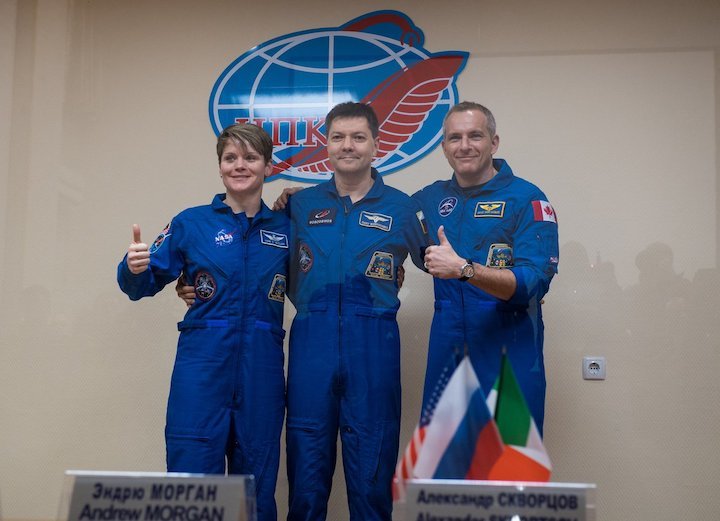

Quelle: NASA
----
Update: 3.12.2018
.
Launch-Day-Live
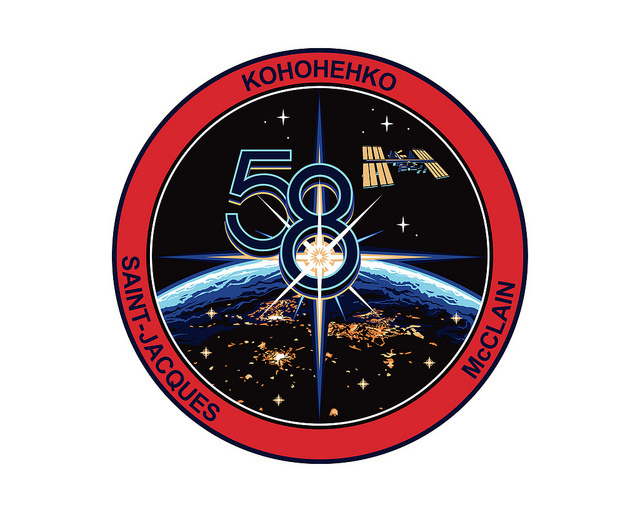


+++




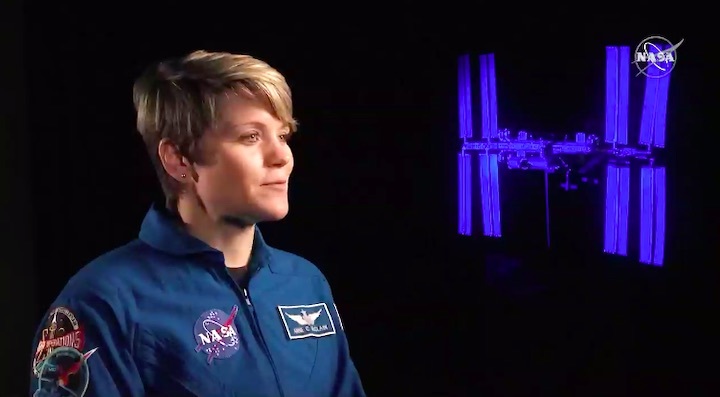
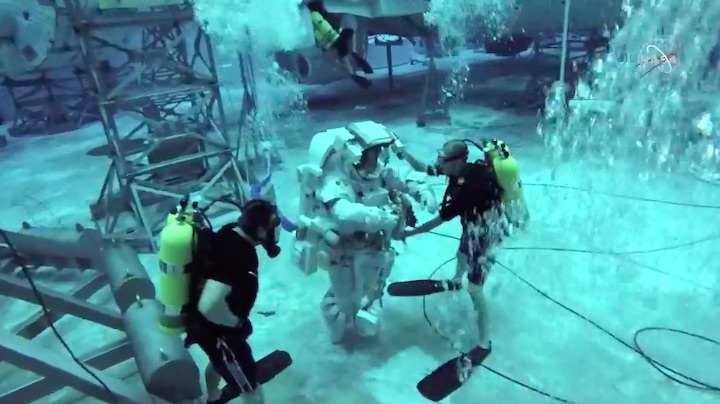
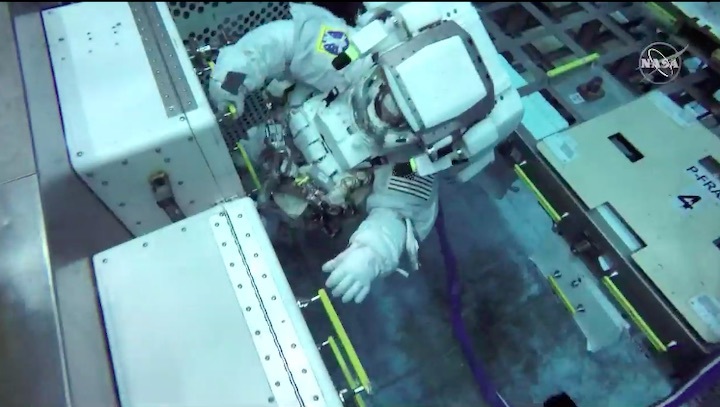
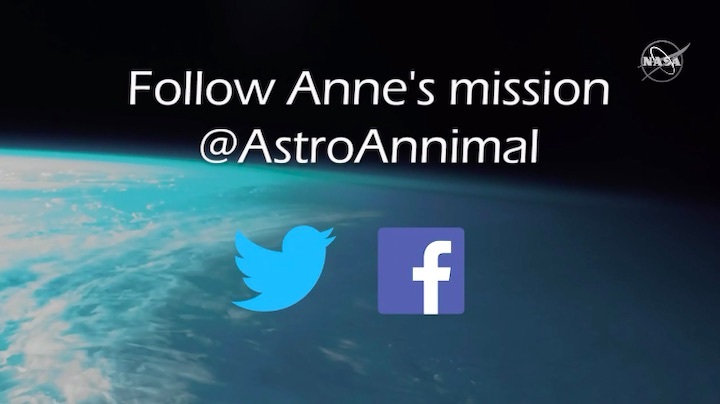


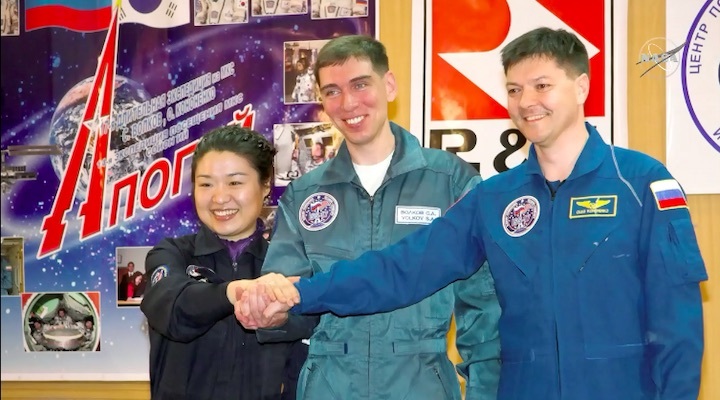


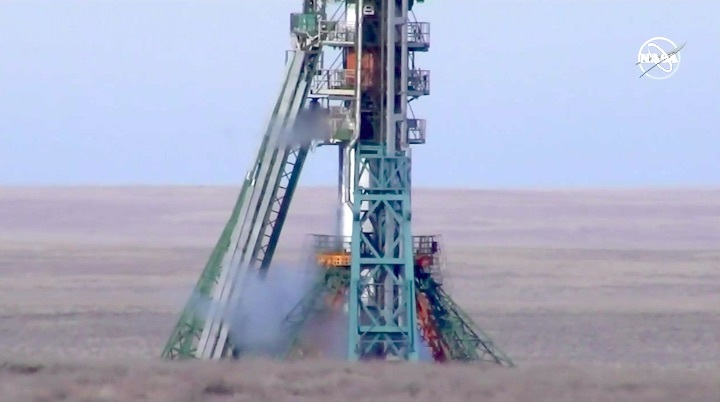





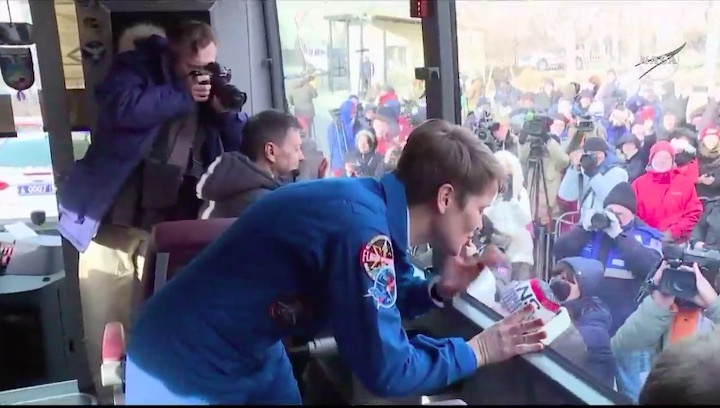


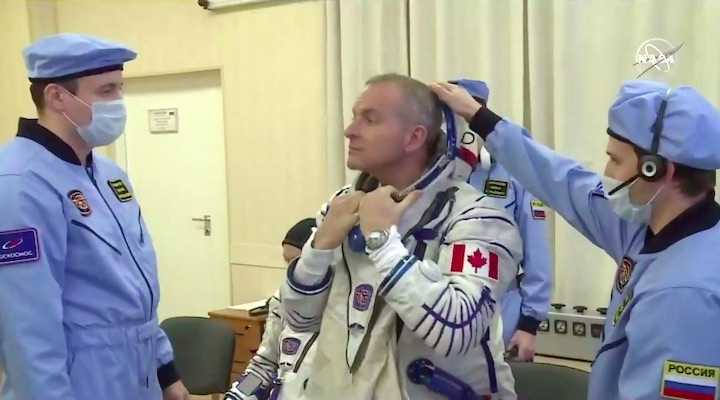
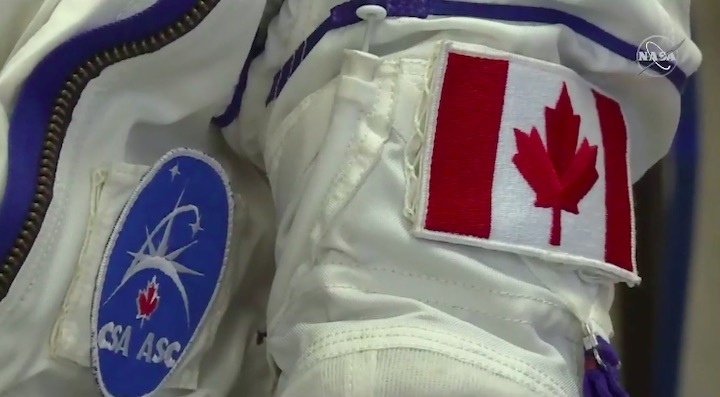


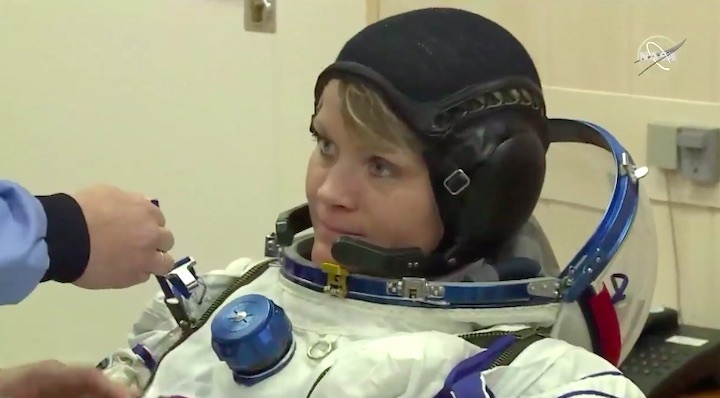
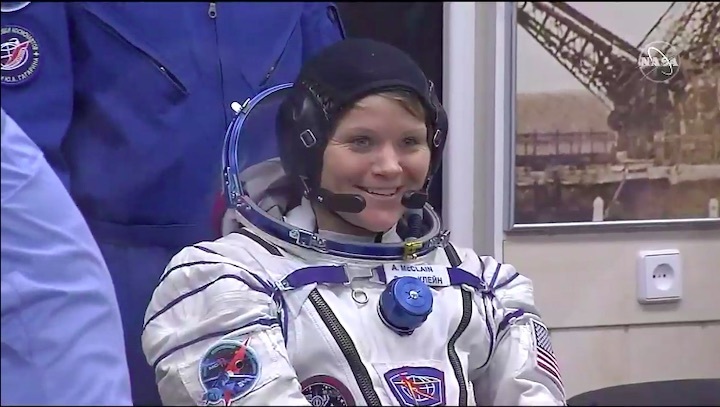
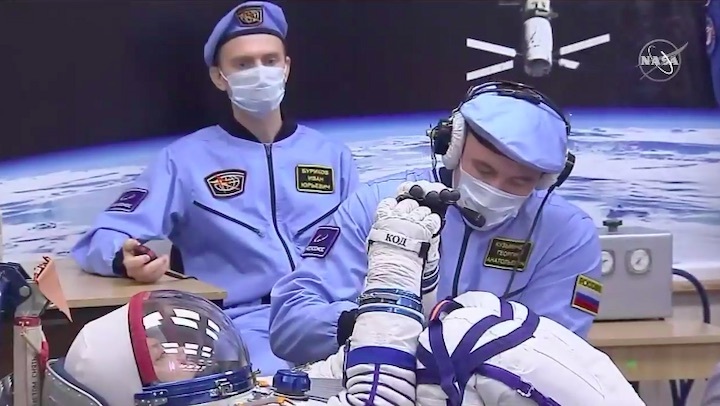








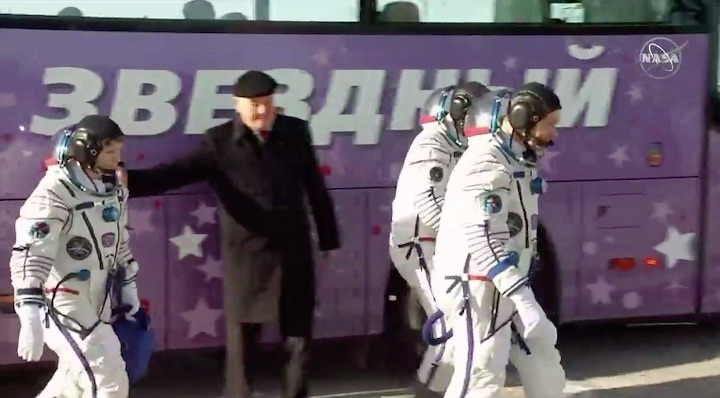

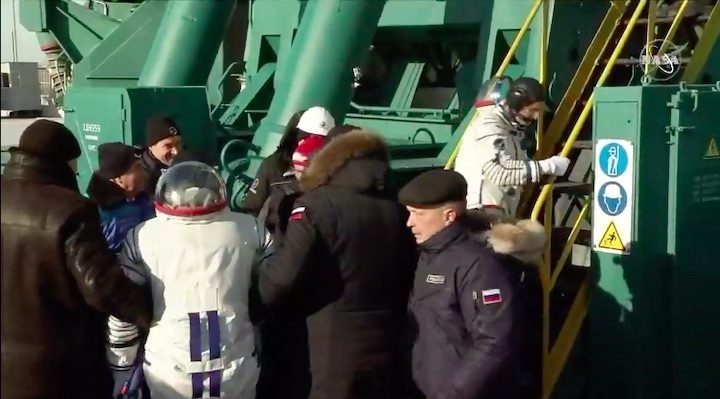
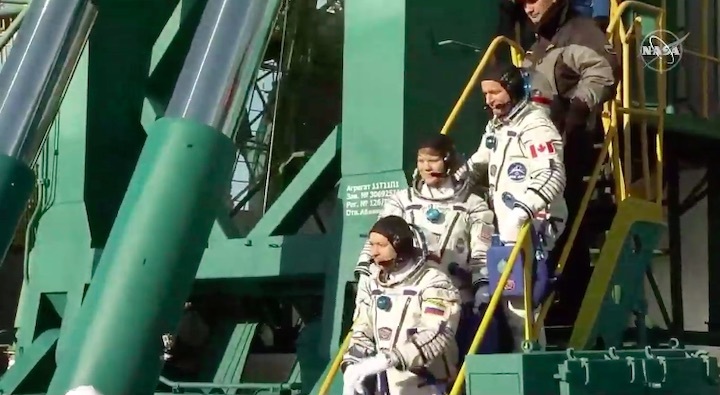

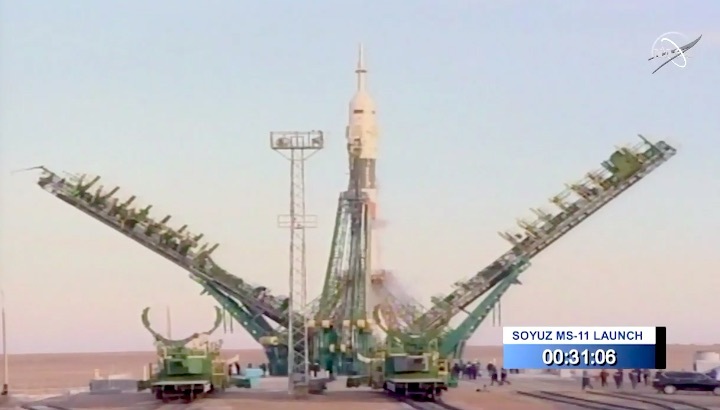
+++



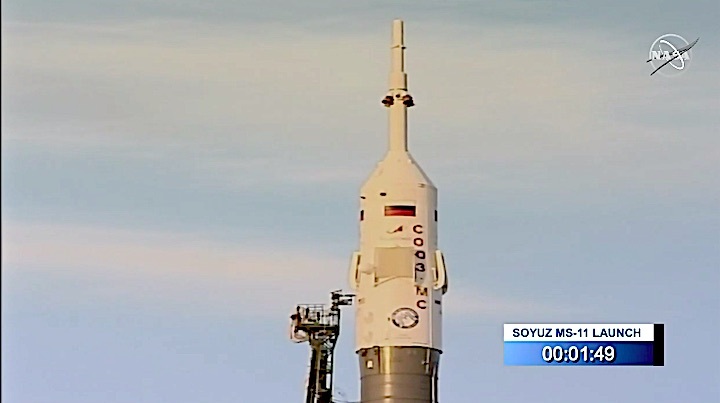
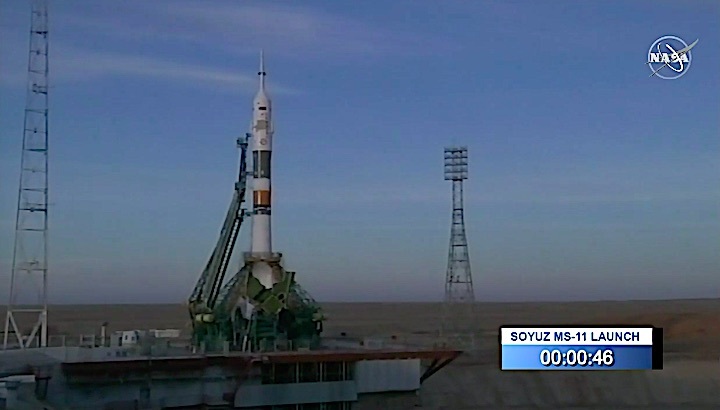

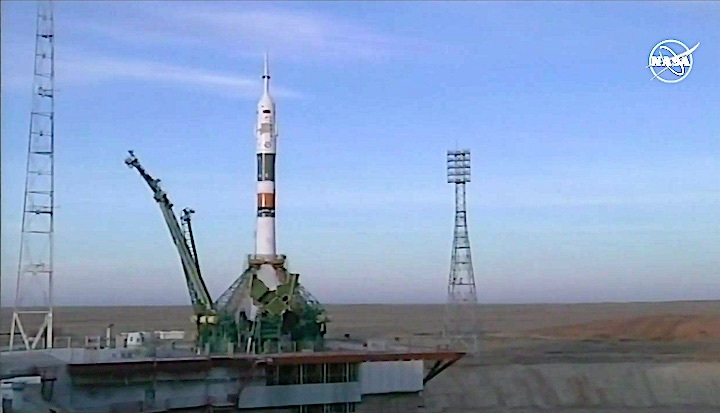


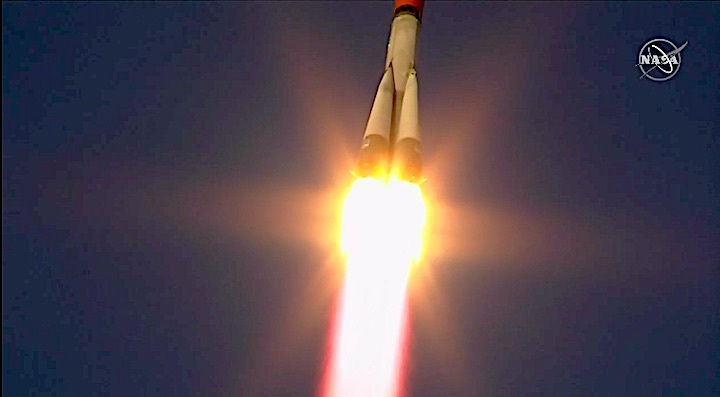





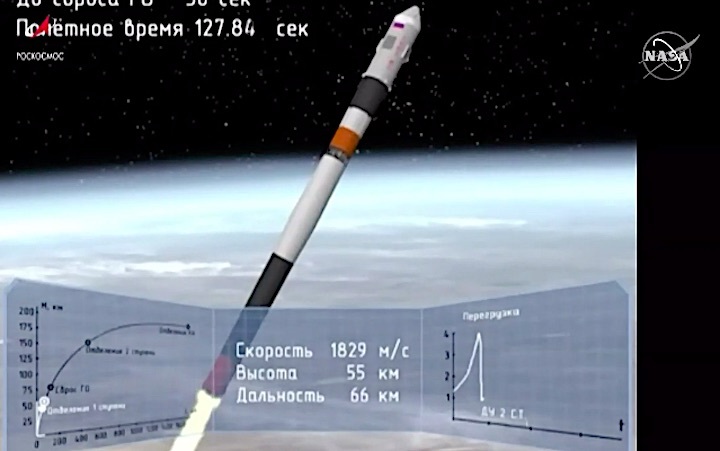
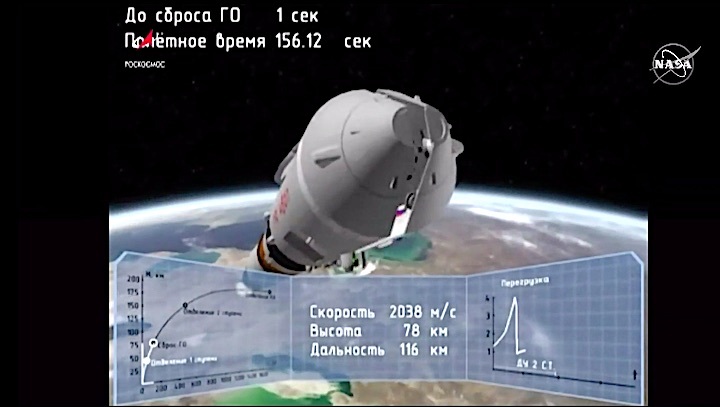


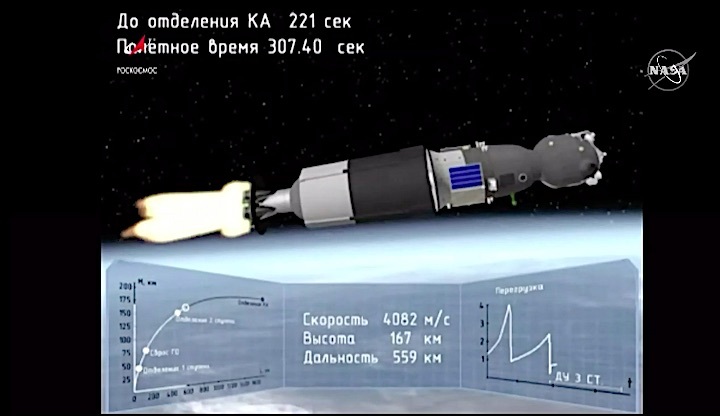





Quelle: NASA-TV
